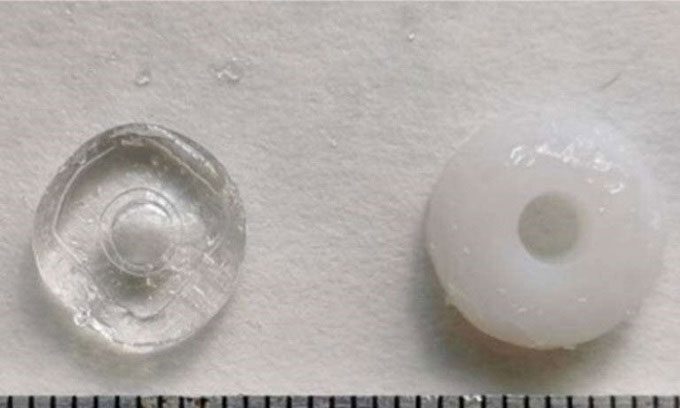Researchers at University College London have developed a new 3D printing technique that enables rapid on-site drug production.

3D printed drug capsule. (Photo: University College London).
The findings, published in the journal Additive Manufacturing, enhance the application of 3D printers for producing personalized medications on demand. In the study, scientists incorporated paracetamol into capsules made using 3D printing.
One of the leading techniques in 3D printing is photopolymerization, which provides the highest resolution at a small scale, suitable for various types of medications that do not require high temperatures. To print drugs, this technique uses a synthetic resin formula, dissolved in a chemical solution that undergoes photochemical reactions. Once activated by light, this type of resin solidifies to form a printable drug capsule. However, photopolymerization is limited by slow printing speeds due to the layer-by-layer printing process.
The research team, led by Professor Abdul Basit at the School of Pharmacy, University College London, developed a new photopolymerization technique that prints the entire object at once, reducing printing times from several minutes to just 7 to 17 seconds, depending on the type of synthetic resin used. This technique works by illuminating multiple images of the object from different angles onto the resin material. The light intensity gradually increases until it reaches the threshold for the photopolymerization process to occur. By adjusting the light intensity at various angles, every point of the 3D object in the synthetic resin can reach that threshold simultaneously, causing the entire 3D object to solidify at once.
“Personalized 3D printed medications are evolving rapidly and being integrated into clinical applications. To adapt to the fast-paced clinical environment, we have developed a 3D printer that can produce drugs in just seconds. This technology could transform the pharmaceutical industry,” shared Dr. Alvaro Goyanes, a co-author of the study from the School of Pharmacy, University College London.



















































